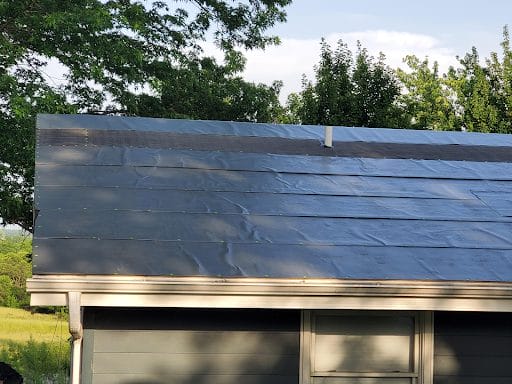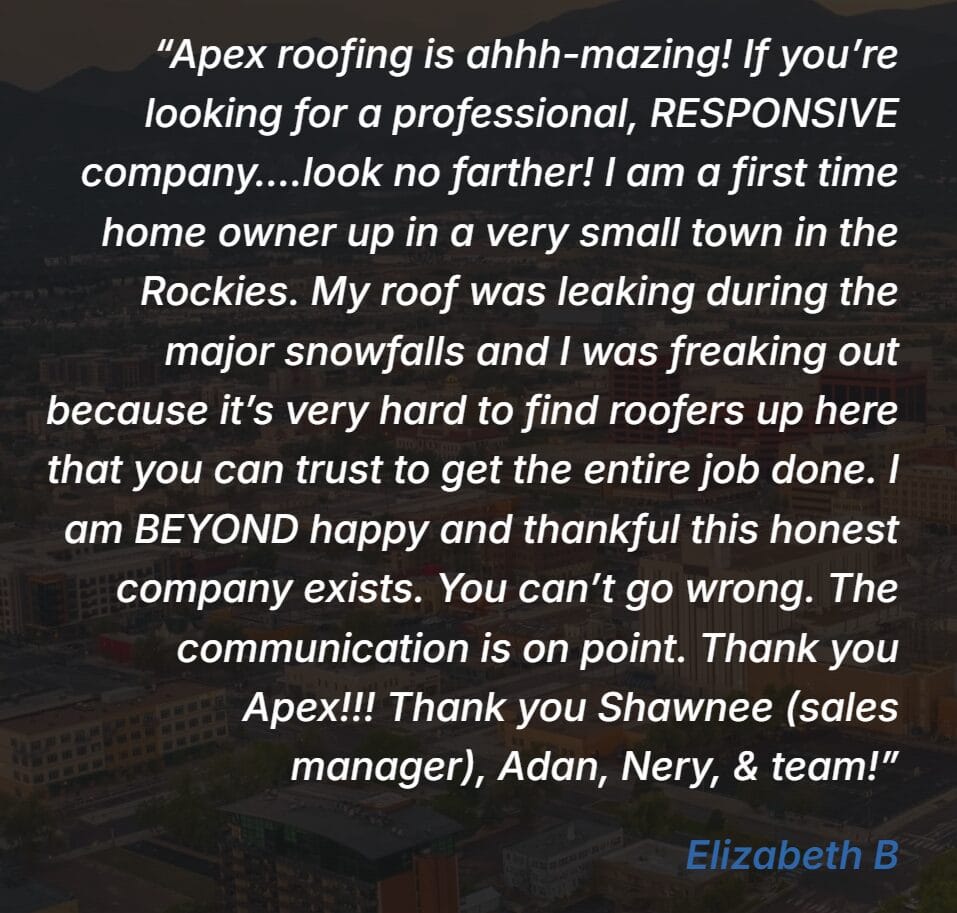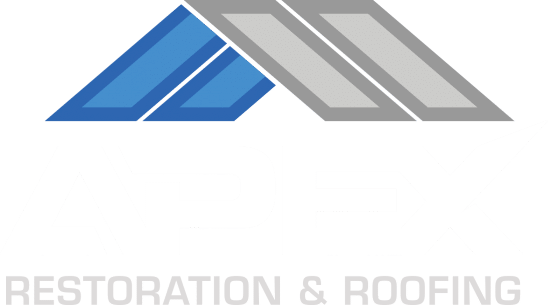Key Takeaways
- In Colorado, a permit is generally required for roof replacements exceeding 100 square feet.
- Not getting a roofing permit can lead to fines, legal issues, and voided insurance claims.
- Residential and commercial roofing have different permit requirements–so always check local regulations.
- Apex Restoration & Roofing provides roof replacement services in Colorado.
Understanding Roofing Permit Necessities
Roofing permits act as proof that all work complies with local building codes, which are designed to keep your home safe and secure. This is not a bureaucratic step; it’s a critical safety measure.
Most importantly, a permit is typically required if your roofing project covers an area larger than 100 square feet. This applies to both residential and commercial properties.
Common Mistakes to Avoid
Homeowners often make the mistake of believing that they don’t need a permit for minor roof repairs. If the repair exceeds 100 square feet or more than 10% of the total roof area, you will need a permit; failing to obtain one can result in fines and complications with future home sales.
Another mistake is not checking the specific requirements of your local municipality. Different areas might have varying rules, and it’s essential to understand these before starting any roofing project. Again, ignoring these details might lead to costly delays and compliance issues.
| Apex Restoration & Roofing: Your Roofing Specialists in Colorado Located in Englewood, Colorado, Apex Restoration & Roofing offers expert residential and commercial roofing services. With over 27 years of experience, we specialize in roof replacements, repairs, and storm damage restoration, using only the highest quality materials. Our A+ BBB rating and a 5-star rating on Google from satisfied customers ensure your project meets the highest standards of quality and satisfaction. See the Apex difference today! |
Roofing Permit Guidelines in Colorado
Permit Requirements
For both residential and commercial properties, specific requirements must be met when applying for a roofing permit. These typically include submitting detailed plans of the proposed work, proof of contractor licensing, and sometimes even insurance documentation.
Roofing permit requirements in Douglas County:
- Permits are required for any roofing work exceeding 100 square feet or more than 150% of the total roof area.
- Mid-roof inspections might be necessary for low-slope or specialty roofs.
- Final inspections are mandatory for all re-roofing permits.
- Wood shakes and shingles are prohibited in designated wildfire hazard areas unless they meet minimum Class “C” fire-resistance ratings.
- Roof systems must not exceed 600 lbs per 100 sq ft without analysis by a registered structural engineer.

Roofing permit requirements in City of Littleton:
- Permits must be obtained before starting work and displayed visibly.
- A mid-roof inspection is required once 25% to 75% of roof covering material is installed.
- A final inspection is necessary to close the permit.
- All roofing must comply with local codes and manufacturer installation guidelines. Any gaps exceeding 1/2 inch in sheathing require overlay with panel sheathing.
Cases where a roofing permit is not needed:
- For buildings under 25,000 square feet, up to 10% of the roof can be repaired without a permit.
- For buildings over 25,000 square feet, up to 5% of the roof can be repaired without a permit.
- Roof coatings can be applied without a permit, regardless of roof size.
Residential vs. Commercial Rules
Residential roofing projects often have different rules compared to commercial ones. For instance, residential projects (including single-family homes and townhouses up to three stories) must comply with the International Residential Code, while commercial projects must adhere to the International Building Code.
Application Process
The application process for a roofing permit in Colorado can be completed online. Before applying, make sure you have all necessary documents, including detailed plans and contractor information.
Additionally, contractor information is essential. Hiring a licensed and insured contractor satisfies permit requirements and guarantees that you’re working with a professional who adheres to industry standards.
Local Municipality Differences
One of the key challenges in obtaining a roofing permit in Colorado is understanding the differences in regulations across various municipalities, as each city or county may have its own set of rules and requirements.
What If I Don’t Get a Roofing Permit?
Potential Penalties
Going ahead with a project without a permit can result in substantial penalties (e.g., daily fines) depending on the municipality and the extent of the project and add a significant cost to your roofing job.
Besides that, you might be required to undo completed work to allow for inspections, further increasing costs and time spent.
Impact on Home Insurance
Many insurance policies require that all home improvements, including roof replacements, comply with local building codes. Without a permit, your insurance will not cover any damage or issues that arise from the unpermitted work.
This lack of coverage can leave you vulnerable to paying out-of-pocket for repairs or replacements if problems occur.
Legal Consequences
Unpermitted work can lead to legal action from your local building department. This action might include fines or even a court order to stop work until a permit is obtained.
Additionally, selling a home with unpermitted work can be a problem. Potential buyers may be deterred, or you might be required to disclose the lack of permits, affecting the sale price or the ability to close the deal.
Choose Apex for Your Roofing Projects
At Apex Restoration & Roofing, we understand the intricacies of roofing permits in Colorado. Our team is well-versed in local regulations and will ensure that your project complies with all necessary requirements–we handle everything from initial inspections to the final touches.
Our services range from residential roof repairs to commercial roofing projects. We specialize in a variety of materials, including asphalt shingles, metal roofing, wood shakes, and concrete tiles. This level of expertise means that your roof meets local codes and stands the test of time.
- Residential Roof Repair and Replacement: Specializing in asphalt shingles, metal roofing, wood shakes, and concrete tiles.
- Commercial Roofing: Expertise in flat, low-slope, and metal roof retrofit applications.
- Storm Damage Restoration: Detailed inspections and insurance claim assistance.
- Emergency Roof Repairs: Quick response times to protect your property.
- Preventative Maintenance: Routine maintenance to extend the life of your roof.

Contact Apex Restoration & Roofing today!
Frequently Asked Questions (FAQ)
What is the average cost of a roofing permit in Colorado?
On average, homeowners can expect to pay between $255 and $500 for a roofing permit.
How long does it take to get a permit approved?
Permit approval times can vary, but generally, it takes anywhere from a few days to a couple of weeks. This timeframe depends on the complexity of the project and the workload of the local building department.
For example, in Arvada, Colorado, the permit process typically takes 5-7 business days, but during peak times, it might extend to two weeks.
Can I apply for a roofing permit online?
Yes, many Colorado municipalities, such as Denver and Colorado Springs, offer online permit applications through their official websites.
